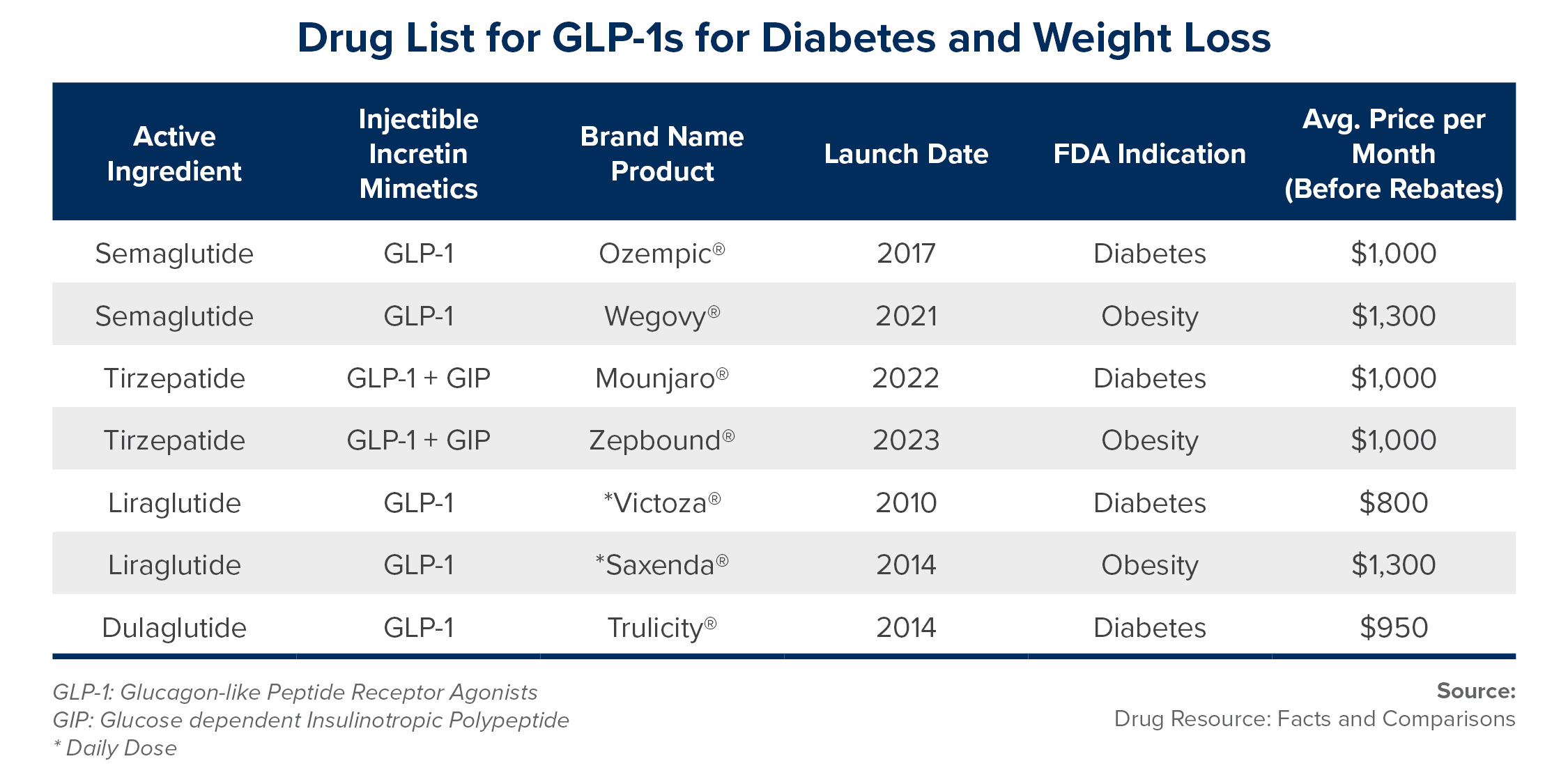Weight Loss Drugs: GLP-1 Agonists
Employee Benefits
Weight Loss Drugs: GLP-1 Agonists
- 43% of U.S. adults have obesity.1
- The CDC estimates that the extra medical expenses associated with obesity exceed $173B.2
- Obesity is associated with costly conditions, including diabetes and heart conditions.
What Should Employers Know?
Glucagon-like peptide agonists, or GLP-1s, are a new class of drugs found to help people lose excess weight. While these medications were initially approved to treat type 2 diabetes, researchers noticed GLP-1 patients were losing weight. This prompted the manufacturers to file the drugs with the FDA with a new weight loss indication. Manufacturers re-branded products for weight loss indication, as noted in the table below.

While GLP-1 drugs offer some hope to people with chronic obesity and related conditions, including metabolic syndrome, they are expensive. The number of people using these drugs has increased because of the resulting weight loss. However, this led to the GLP-1s’ drug class becoming among the costliest medications for employers over the past two years.
While there has been short-term weight loss due to the GLP-1s, there are no current studies demonstrating long-term weight loss success and a corresponding reduction in the prevalence of associated conditions.
What Can Employers Do?
Use data to quantify the possible impact of weight loss drugs on your costs.
- How many people in the plan are chronically obese and/or have type 2 diabetes?
- How many people are taking weight loss medications, and has that number increased in recent months?
- What is the average cost of the drugs?
If an employer chooses to cover anti-obesity drugs, the following are important considerations:
- Implement a prior authorization (PA) program so they are prescribed only for patients who are candidates for treatment.
- Minimum Body Mass Index (BMI) FDA guidelines should be applied so the drugs are used for chronic obesity, as opposed to a quick diet aid.
- There are risks with these medications that a physician should thoroughly vet before PA is approved.
- Consider additional management programs from third-party vendors and/or the PBM to enhance the clinical management of treatment to help mitigate unnecessary spending.
The GLP-1 pipeline is robust, with a new triple agonist injectable that will potentially have a greater impact on weight loss than existing drugs. There will also be a pill form that may increase the use of these medications for those who are uneasy about injecting themselves. Read more.
1 CDC: Adult Obesity Facts.
2 USA Facts: US obesity rates have tripled over the last 60 years.
3 Drug Resource: Facts and Comparisons.
